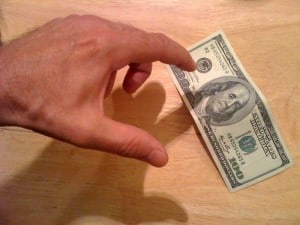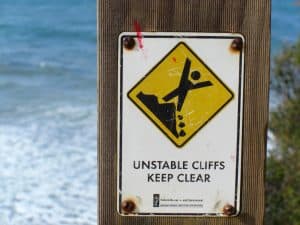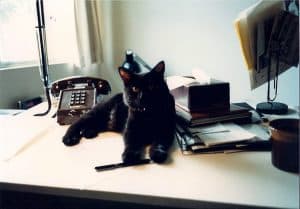
Sunday, 7:36pm
Reno, NV
“A thief believes everybody steals.” (E.W. Howe)
Howdy…
For those of you bugging me about the next Quiz…
… it’s coming, it’s coming.
Soon.
Tonight, though, I’ve gotta get something off my chest.
And so, a Rant. By little Johnny Carlton:
Ahem.
There seems to be a parasite bug infecting the brains of many marketers out there.
Let’s call this bug… “Theft“.
It’s not going away anytime soon.
In fact, the very word has been mutating for a long time now… so that what would have easily been labeled “stealing” in the bad-old pre-Web days…Read more…

Friday, 1:04pm
San Diego, CA
“First, learn your craft. It won’t stop you from being a genius later.”
Howdy.
Quick little note today, to take you through the weekend (while I’m down here in Baja La-La Land speaking at the star-studded “Paid For Life” seminar).
If you — like me in my mis-spent youth, and like the vast majority of folks out there who “can’t get started” — feel a sense of satisfaction over your ability to Think Deep on Big Thoughts…
… you’d be doing yourself a favor by murdering that satisfaction right now.
The best quote I’ve ever seen on this was by biz legend Peter Drucker:
“Brilliant men are often strikingly ineffectual. They fail to realize that the brilliant insight is not by itself achievement. They never have learned that insights become effectiveness only through hard systematic work.”
In other words…
… you will never get shit done — no matter how smart you are (or think you are) — until you get MOVING on your ideas.
I, too, was a lost and wandering soul… until I discovered (by accident) the concept of goal-setting and — just as important — the trick to actually putting your goal-achievement plans into action.
That trick?Read more…

Tuesday, 8:54pm
Reno, NV
“You can check out anytime you like, but you can never leave…” (Eagles, “Hotel California”)
Howdy…
Today, let’s explore a little-discussed part of running a biz…
… using a couple of enlightening (and very brief) anecdotes from my recent (and continuing) “Adventures With Hotels”.
Let’s call this lesson: The Faded Lady and the Trump.
With all due apologies to Disney’s classic dog-romance movie, of course.
See if you can spot how the following short story applies to YOUR business…
Ahem.
Each of the last two weekends found me in different cities, staying in hotels I booked online, sight-unseen.
In Sin City, it was the splendiferous Trump International Hotel Las Vegas.
In San Francisco, the once-famous, now-infamous Cathedral Hill Hotel.
Now, the Trump joint was built with luxury in mind. Shiny, tall, imposing building with huge well-apportioned rooms and super-modern equipment like elevators and art.
As a “product”, the building was great. (Though it seems idiotic not to have any gambling on the premises, as a wanna-be “player” in the Las Vegas scene. I heard that Trump got skunked on getting his gambling license, but that’s not the spin the staff offered. “We just didn’t want gambling here,” is what they said, unconvincingly.)
Great price for the rooms, too. (Most likely because of the lack of casino amenities and dearth of unit sales, which turned it from condo to hotel.)
I have complaints about the joint… but not because of the room, the rate, or the basic delivery of stuff like air conditioning, clean water, nice beds, etc. (In fact, their pillow-top beds are amazing to sleep in. Like being cuddled by angels.)
Now, back in SF, it was a completely different situation.
We hosted a gathering of writers, affiliates, and other mucky-mucks at the Cathedral Hill Hotel because we wanted to treat everyone to an evening with the world-renown “Beer Chef“, who puts on fabulous dinners there once a month. (You can read more about Bruce Paton’s unique meals at www.beer-chef.com. )
You want the “Beer Chef”, you deal with Cathedral Hill. (And yes, we very much wanted his magic. He creates these shockingly-tasty gourmet meals there, with each course matched by a local micro-brew beer instead of boring old wine. It’ll knock your socks off, even if you aren’t well-versed in pilsners, ales and lagers.)
We also started the day off with an afternoon-long brainstorm session in the hotel’s main meeting room. (I’m sure you caught some of the updates on Twitter from the luminaries and stars in attendance.)
However…
… none of us had ever stayed at the hotel.
And while it has a storied past (well-chronicled in San Francisco lore), it has, alas, fallen on hard times.
Culminating in being bought out a short time ago and scheduled for the wrecking ball.
Ouch.
We made the most of it. The stories and jokes we all shared about our rooms and experiences in the hotel are howlingly funny…
… but still, as a “product”, there’s no getting around the fact that the building was in serious disrepair.
Sort of like a once-beautiful lady who has fallen on hard times, and ended up sacked-out in a filthy alley, soused with cheap booze and a reputation heading south at light speed.
The price was actually a red flag: You cannot stay in the city, in a decent room, for anywhere near the rate Cathedral Hill was asking.
Kind of like seeing an ad for a luxury Caribbean Cruise in the paper for five bucks. It sort of sets off your early-warning alarm. (Five bucks and your kidney, maybe.)
So… while no one got robbed, or found a dead hooker in their room… Read more…

Sunday, 5:45pm
Reno, NV
“There is no problem in the world that cannot be solved with a good sales letter.” (Gary Halbert)
Howdy…
Increasingly, I am teaching less about the technicalities of copywriting, and more about the subtle (and much ignored) art of salesmanship.
And this makes sense, given the nature of the Web. Copywriting is mostly a technical skill, something you can learn to do without actually understanding what it is, exactly, that you’re doing.
Sort of like learning to play songs on a guitar without having a clue how each chord relates to music theory — you just put your fingers like so on the fretboard, and strum.
One of the first things I did in the “Kick Ass Copywriting Secrets” course was to lay out a blueprint for a basic ad. It’s almost “paint by numbers” — write something about you here, something about the product here, list some benefits here, etc.
I also laid out a way to capture a good spoken pitch, and transcribe it into a working ad.
Your fundamental, nothin’ fancy, stripped-down pitch.
The very best copywriters are artists, and understand every nuance of writing.
But for most projects, you don’t need to be a top copywriter — you just need to get the job done of presenting what you have, showing why it’s something your reader wants, and offering an easy way to get it.
As my pal Dan Kennedy likes to say:
Good enough is good enough.
For many of the entrepreneurs and small biz owners I deal with, creating an ad that is “good enough” to get a basic sales job done is all they need to get over the hump of moving into profitable territory.
And with the Web increasingly offering so much free info, you really can get most of the way “there” without paying a cent for anything.
However…
… and it’s a BIG “however”…
… you will never get above the level of mediocre sales until you go deeper with your understanding of both copywriting AND salesmanship. (Just like the guitarist who never bothers to learn music theory will forever be locked into playing only the most simple tunes, and will get lost easily when playing with other musicians. It’s the difference between “Kumbaya” and “Take Five”.)
Did you get your copy of “11 Really Stupid Blunders You’re Making With Your Biz & Career Right Now“? If not, maybe I should add Blunder # 12. Because not having this insanely valuable resource is a big mistake. Luckily you can remedy it right over here.
This is why I wrote extensively about salesmanship in the “Kick Ass” course…
… and why I hid so many other advanced lessons on salesmanship in there, too.
True success in both business and life comes down to learning the psychology and real-world application of advanced salesmanship, not just the technical details of slamming out pitches or memorizing a few persuasion tricks.
Top copywriters are master sales pros, first.
The “form” of writing copy follows the “function” of knowing how to sell.
That’s why my course — and my seminars, and my coaching clubs, and everything else I do — remains so fundamentally different than what other people teach.
Because what most people need is a good, stiff shot of masterful salesmanship. Not more technical skill at copywriting, not more graphics knowledge, and not more of anything else.
Every once in a while, I come across a “natural” salesman. They are rare. And they intuitively understand what I’m trying to teach about using copy to channel killer selling chops.
But for most folks, trying to convince someone to buy remains a big damn mystery. This is particularly frustrating when you get your basic copywriting chops down — so your ad reads well, and covers all the basics — and yet you don’t convert as many sales as you’d hoped for.
So here is the mystery, solved:
It is actually EASY to get a prospect to say “Hey, that looks like a pretty nice product”, and even agree with you that he should probably buy it.
However, it is much more difficult to move to the next level… and get that same prospect to actually pull out his wallet and give you money.
Ready to take your marketing skills to the next level? Then rush right now to consume all the resources right over here.
This is where world-class salesmanship comes in. It’s not rocket science… but until you allow your stubborn little brain to digest the lessons, it will remain a mystery.
Even bad copywriters can coax a prospect to climb up and sit on the fence.
But it takes a deep knowledge of persuasion to knock him OFF that fence, and into your yard as a customer.
I used to have to hide the fact I was teaching so much classic salesmanship… because to many people, the whole concept seems fraught with scary implications of “mind control” and sleazy persuasion tricks.
Just get over it.
Everyone sells.
Almost every single human interaction involves some level of salesmanship — kids try to sell unrestricted access to the cookie jar to Mom… teens try to sell themselves as good dating material… every essay you ever wrote was a sales job for a good grade… politicians sell themselves for your vote… and every friend you have had to be “sold” on liking you, first.
People who get good at selling live better lives. Most people suck at selling, because they never pay attention to the process.
You can get through life without understanding salesmanship. But that’s all you’ll do — “get through” it.
The magic doesn’t happen until you start learning the tough lessons.
If you’re in business, and you ignore salesmanship, you’re toast. You can create a fabulous product, or present a fabulous service… and you can even get lots of prospects to eagerly tell you how great your product or service is, and how you should get filthy rich because it’s so great.
But that’s just piling prospects up on the fence, where they will sit forever if you don’t learn how to knock ’em off that fence.
Success is not about getting good PR or lots of pats on the back.
It’s about closing the deal.
Almost everything I write has a lesson in salesmanship hidden in it. It’s a little like teaching a kid about economics by giving him a dollar toward something he wants that costs two dollars — he’s got options and choices to make, and will have to learn to handle frustration and manage his dreams. He may not realize he’s learning basic capitalism, but he is.
And he learns absolutely nothing by you giving him the two bucks right off the bat.
And don’t get offended by the “child psychology” reference here. I had to learn most of my own lessons the hard way, and my mentors used the most cruel and insultingly-basic teaching methods possible.
Remember the car-washing exercises in “Karate Kid”?
Learning is painful. We’re all basically lazy beasts, resistant to new stuff. And the deep arts of classic salesmanship often run against the grain of “common sense”, or seem to come from left field.
But then, everything worth having takes some effort.
Every single lesson you learn nudges you a little further ahead than the other guy.
The big lesson here: Most mainstream advertising, at best, gets people up on the fence.
Just knowing that massive success requires learning how to knock them OFF that fence, puts you in a position to obliterate your competition.
If you lust after an extraordinary life, you need to master the tools of getting what you want.
And it’s all about salesmanship.
Stay frosty…
John Carlton

Tuesday, 9:20pm
Reno, NV
“Yep, nothin’ gets by me, cuz I’m a real fart smeller… uh, I mean smart feller.” (Cousin Donald)
Howdy…
It took me an awful long time to figure out that — to get anywhere in life — I would have to buckle down and actually get good at something.
That was a painful realization. I was thirty-two at the time, no longer young, no longer having fun doing the things that had pleased me so thoroughly just a year or so earlier.
I was done with having potential.
Screw potential.
Potential can murder your life.
All through my formative years, I was given special attention because I could draw well (I had weekly cartoon stips in both my high school and college newspapers) (even won a Quill & Scroll award)… had some musical ability (my ragged bands played for friends’ parties and at school dances)… and evidenced a little precociousness with my fiction writing.
Relax. I sucked at fiction. I wrote complete stories, was all. On my own time. This amazed teachers, but it wasn’t anything all that great. Any early signs of authorship had absolutely no correlation to copywriting. In fact, it probably set me back a couple of years.
As I’ve often said, it’s easier to teach a near-illiterate salesman to write good copy, than it is to teach salesmanship to someone with a Ph.D in English literature.
But back then, I was just good enough at several creative skills to suffer the curse of potential.
You know what potential does? It gets you credit for not actually doing anything difficult. You get used to the easy accolades… and never develop good work habits, cuz it’s no big deal for you.
During my days hanging with the “D” list Hollywood crowd, I saw the ravages of potential up close and personal. Most of the folks who’d ever been praised for a small acting gig, or had a bad TV screenplay optioned, or had scored a “meeting with John Candy’s people”… coasted on that cloud for as long as possible.
For many, their brush with success became a standing joke. We’d make bets on how long they’d wait before bringing it up to someone new. (Average time: About three minutes.)
If I was in charge of the world, I’d take every kid with potential aside… and clap them all into a boot camp, where we’d wipe that smirk off their face. And make ’em earn some real kudos.
It’s the only way to save most of them.
The most vivid example of potential versus reality I ever saw was down in Miami Beach, after it’d become a hotbed of the fashion world. Every day, several buses would arrive, crammed with young women who were the best-looking creatures who’d ever graced the small town they’d just come from.
And it took about an hour for them to realize that, as god-like as they were treated back home, here in the center of the model universe, they weren’t even on the map.
It isn’t fair.
But it’s the way it is.
So the person with a little “natural” talent at something may have a tiny advantage over the raw rookie who never heard the term “potential” tossed their way.
But that tiny advantage is irrelevant… unless it gets honed into a big advantage.
And guess what? It takes just about the same amount of hard work to hone a little talent, as it does to go from zero to hero.
Never let your perceived lack of natural ability stop you from trying something.
I’m thinking about this, after seeing Bela Fleck, Stanley Clarke and Jean Luc Ponte at the Hawkins outdoor amphitheater tonight. Stunning expertise there — on violin, gut bass, and jazz banjo.
They were dressed casually, they didn’t require any formal introductions, they joked and were at ease with each other and the crowd while they played.
And it was exquisite.
These guys are experts. And if you listen closely, you can catch pieces of Bach, Mahavishnu Orchestra, Coltrane and Weather Report licks thrown in, as teasing references.
Nice stuff. I’ve been following these musicians, separately, for thirty years. They were damn good back then. They are transcendental now.
Earlier today, I hung out in the kitchen while a new repairman took apart the built-in microwave, found hidden ice blocking the fan in the freezer, and showed me the right Allen wrench to use on the locked-up garbage disposal.
I thoroughly enjoyed watching him work. In another life, I could have happily been an odd-jobs artist… going deep into the mechanical flotsam of our lives.
He had a complaint — he’d hired, and fired, almost twenty different guys in the past year, trying to find someone who could handle some of the repair work for his thriving business.
The problem was best illustrated by the last guy — who wasted forty-five minutes trying to remove a plastic cover inside a broken dishwasher door… and finally brought the entire door back to the shop. He insisted it was permanently welded shut. The boss took it apart in twenty seconds.
“The thing is,” he told me, “that guy should have been humiliated. But he wasn’t. These rookie repairmen all want me to teach them the specifics of doing each job… but it ain’t like that.”
“It’s the process they need to learn,” I said.
“That’s right. Not the details of just that one job. They need to fall in love with figuring this stuff out.”
“It’s the same with advertising,” I said. “Great ads are the result of great sales detective work. And few want to put in the sweat.”
“Damn straight,” he said. And refused payment for fixing the fridge. Said it was his pleasure, because he enjoyed talking to me as he worked.
So… I’ve been thinking about expertise. What it is, what it takes to attain it. And what it means, after you have it.
And while I’m thinking… I get an email from someone that says: “Hey John. I want to be a world-class copywriter. What do I do to get started?”
Ummmmmm….
And it dawns on me. Finally.
There’s a great quote I like: Learn your craft first. It won’t stop you from being a genius later.
The musicians tonight displayed genius, yes… but they expressed it through a master craftman’s skill level.
The repairman seemed to be working magic, listening to the freezer and finding the exact problem as if by divining the source. But really, he was just using the skills of his craft — figuring things out.
I’ve argued before that Picasso ruined painting. Not on purpose, of course. He went off on a totally bitchin’ tangent that riveted the world.
But everyone who learned painting after that, started with Picasso’s abstracts. They completely ignored the fact he was an accomplished realist, first. Knew his craft.
He broke the rules, only after showing he was a master of those rules.
The minions who followed, showed little consciousness of any rules at all. They want credit for being creative… “like Picasso.”
They want you to gaze at their crap, and fathom the potential there.
Because, you know, it’s abstract.
But they lack real craftmanship.
Pisses me off.
You can get away with it, of course, in “art”.
But not in marketing.
All the top guys are super-skilled craftsmen at their job. They learned to write well, and they learned the essentials of great marketing… sometimes painfully, taking however long it required.
Draft after draft after draft. Job by job. Client by client.
There are shortcuts to the gig… but you still have to patiently learn the craft first. This is the thing so many rookies can’t quite get a handle on. You don’t just become world-class because you really, really, really want it.
Be a craftsman. There’s some transcendental joy in knowing you’ve mastered something beyond the smirk of potential.
Stay frosty,
John Carlton

Sunday, 9:07pm
Reno, NV
“When choosing between two evils, I always like to try the one I’ve never tried before.” (Mae West)
Howdy…
A friend, who is briliant at marketing, asked me a question today about writing that has implications for most people.
This guy is a decent writer… but it takes him forever to get copy down on paper. It’s just agonizingly slow, and he hates me because I do it so fast.
Everytime we talk, he sneaks in a question about my writing “habits”, hoping to find the hidden magic secret to getting copy knocked out in record time. This time, he asked about my notoriety as a night owl, and whether I wrote best late at night.
I am a night owl. Even as a kid, the late evening hours held special allure for me. I suffered in the “real” corporate world, because arriving to work by 8 am was just an ordeal. I nearly flunked several courses in high school and college, because they began at 9 am.
Night owls get no slack from anyone.
There have been numerous studies proving that “night people” do exist — our body temperature, alertness and problem-solving abilities actually increase after dinner. A few savvy schools have even identified kids who were like me, and by moving thier classes to the afternoon, reversed their academic decline.
When I first went out on my own as a freelancer, one the of HUGE benefits was being able to work all night, and not worry about having to show up at anyone’s office looking bright and spiffy the following morning. I would frequently work until dawn.
The guy asking me about working at night is also an admitted night owl. He’s also a married man with kids, and a nocturnal work habit wouldn’t go over so well with the family.
So I told him to forget about trying to find the magic of writing fast and good by staying up later.
Because, early in my career, I made a discovery that I didn’t want to be true: I could write juust as good, and just as fast, just as easily, in the morning… as I could in my so-called “peak” hours late at night.
This discovery ruined my best excuse for not writing during the day. Turns out, once you become a craftsman at a skill, you can crank it up whenever it’s needed.
You may pay a price — such as getting exhausted faster, or screwing up your sleeping habits… but you CAN do it. You are NOT a slave to preconceived working hours.
However… I do recommend that you find a time in your day, every day, where you can arrange the space, peace and equipment to write. A two-to-four hour slot of uninteruptable time.
It can be first thing in the morning (as many famous writers insist on), or at the end of the day, after everyone else has turned in (as many other writers end up doing). Get the social implications of your choice in order, so that time becomes sacred. Phone off the hook, locked door, drapes pulled, whatever it takes.
It’s using the power of ROUTINE. There are two reasons why routine works for writers:
1. It becomes an addiction. At whatever-o’clock, you will quickly feel like you need to be at your desk, writing. Anything else that comes up, short of the house burning down or a visit to the ER, gets second billing. You’ll be back to the “real” world right after your writing session. But for now, you’ve got an appointment with a blank page.
2. You actually train your body to dump the internal stew of hormones and chemicals that aid in the kind of focused concentration and mind-play required to write.
It’s the same reason you should exercise at the same time every day — your body will actually do a little preparation as you head to the gym, gearing up the broth needed for lifting and sweating and grunting.
Sleep experts say the best way to get more deep sleep, while sleeping less total hours, and feeling more energy while awake… is to simply have the same bedtime and rising time, every day of your life. So your body isn’t freaked out — like a dog anxiously wondering if we’re ever gonna go to bed tonight — by changing patterns, and so doesn’t overdose or underdose on REM and dreams.
Same with diet. Bill Phillips, author of “Eating For Life” and a guy you do NOT want to argue with about diet, eats six meals a day, at regular times. So his body doesn’t gobble up each opportunity to store fat, thinking he’s starving. And it learns to function at optimum capacity on smaller portions.
So… the key to pumping out reams of great writing, is to set up routines. For some reason, the last few generations (startng with mine) have scoffed at routine, like it’s some cute relic of our grandfather’s time.
It’s not. You can spend the rest of your day being unpredictable and spontaneous and wonderfully whacky… but when it comes to your designated writing time, no one and no thing interferes.
This is a primary element of Operation MoneySuck: Do what you need to do to get the important stuff done, efficiently and regularly.
Side note: You won’t find your groove immediately. You may have to try finding your solid two-to-four hours at different times in your day, through trial and error.
The key is to find a time where you won’t be interupted. My assistant, for example, sometimes arrives while I’m still in writing mode. She knows not to disturb me, doesn’t take it personally, and even takes steps to make sure nothing else disturbs me either.
People will cooperate, once they understand what you’re trying to do.
Sort of. There will also be people in your life who cannot abide the idea that someone (like you) might actually be doing something proactive with your life. And they will find ways to screw with your routine.
It will become important for them to find a way to make you NOT establish a routine. Trust me on this. Mostly, they’re doing this unconsciously… but sometimes they’re well aware of what they’re doing.
When you start establishing radical routines like this, you’ll start producing stuff at an alarming rate. Your life will begin to move faster, and things will begin happening to you. Goals will start getting met, money will start pouring in, your status and position will grow.
This frightens those people in your life who fear change. Watch for this trap. Don’t fall for it.
Side note #2: It will take a while for you to realize when you’ve found your groove, too. People tend to forget that it takes time to get over being the new kid on the block… no matter what you apply that metaphor to.
The first few times I went to my new gym, I felt like the New Guy. Because I WAS the new guy. There was some awkwardness, everyone was a stranger, I got lost trying to find the men’s room.
Then, one fine day a few weeks later, I realized I was totally comfortable at this place. I had a routine. I waltzed in, and said hello to the attendant, who had my towel and bottle of water already waiting for me. All the regular staff nodded hello to me as I passed them. I breezily established my position at my usual warm-up bike, nodded at the other regulars (all on their favorite machine), and drifted easily into “I’m exercising here” mode.
Don’t sweat being the New Guy. It’s just a transition period you must go through. It’s the way it works.
Same with your writing routine. It won’t feel exactly right at first. May take you months to get settled in the right time, with the right routine. So what?
Once you do find your groove, you are off to the races.
Go get ’em…
Stay frosty,
John Carlton







